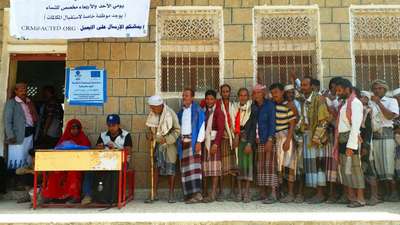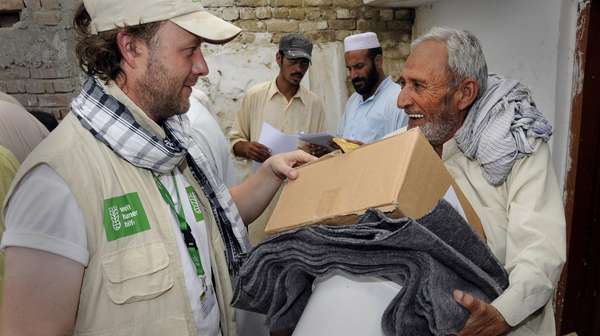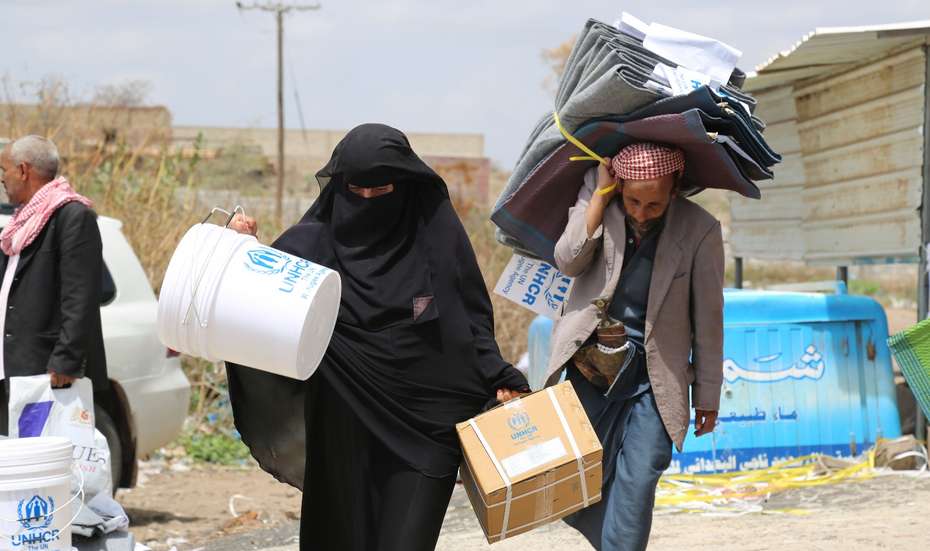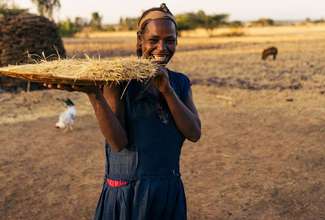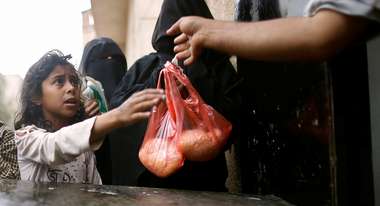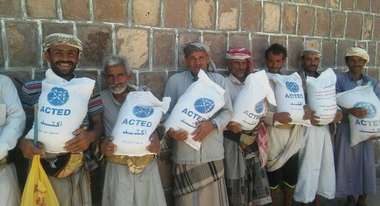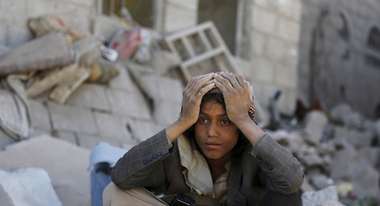Emergency Aid at Welthungerhilfe
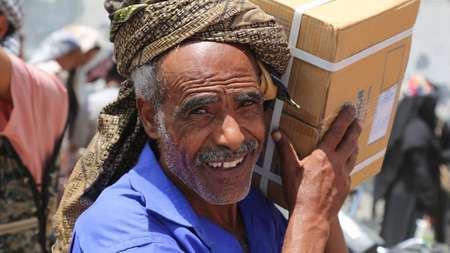
Fighting Hunger with Food Vouchers
Since 2015, Yemen has been wracked by civil war. More than three million people have already fled the armed conflicts. About a million people have so far returned to find their home region destroyed.
Drinking water is scarce, food is running out, and prices for the little food that is left are rising daily. 24 million people are in need of food assistance to survive. That is the 80 per cent of the population. The United Nations have warned of a famine. Together with its Alliance2015 partner ACTED, Welthungerhilfe supports people the Sa’ada Governorate.
Impact of the Corona Crisis on Yemen
The devastation caused by civil war in Yemen has been compounded by the COVID-19 crisis. The number of cases is rising rapidly, despite the likelihood they are being under reported by local authorities. This situation requires the implementation of preparedness and response activities now, especially related to health, water, sanitation and hygiene (WASH). Support for recovery following the crisis to rebuild livelihoods is also envisioned.
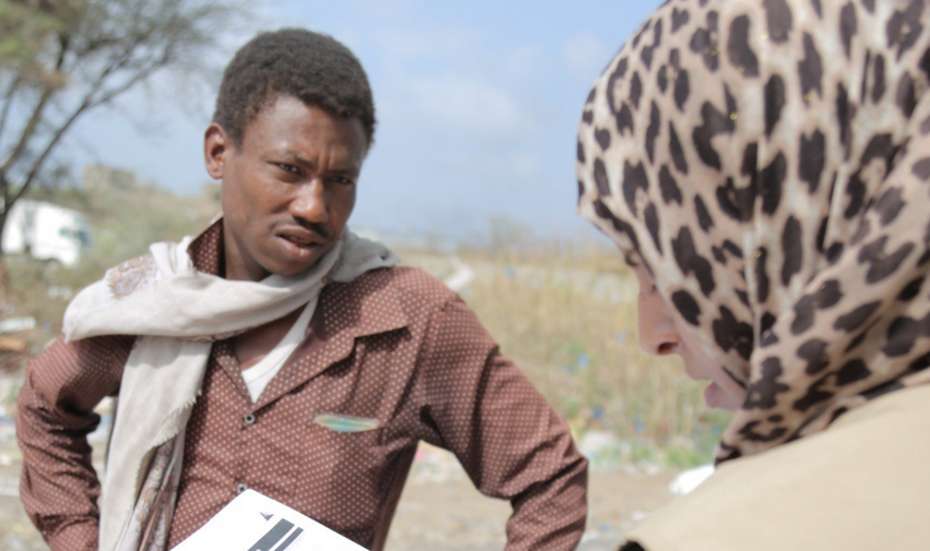
Help through Food Vouchers
Since 2017, Welthungerhilfe together with ACTED supported with so-called food vouchers. So far, 675 households received food vouchers worth about 60 euros each. With the voucher, people can quickly and easily buy food and goods that they needed most.
Together with ACTED, Welthungerhilfe is currently supporting 675 households, or around 4,970 people, in the Governorate of Sa'ada with a total of 745,827 Euros. People receive food vouchers to care for their basic nutritional needs. Both internally displaced persons and host families receive the support. The vouchers can be exchanged for goods at a local authorized dealer, who is reimbursed by ACTED for the value of the vouchers.
ACTED has already had good experiences with food voucher programmes in Yemen. Vouchers, as distributed here in Yemen, often provides more effective and longer-lasting help than does distributing goods: It can be offered quickly and flexibly, and beneficiaries can meet their individual basic needs. This guarantees flexibility and the freedom to make decisions even in emergency situations. Standardised aid packets, on the other hand, do not always cover the needs of all beneficiaries.
All facts about the project





